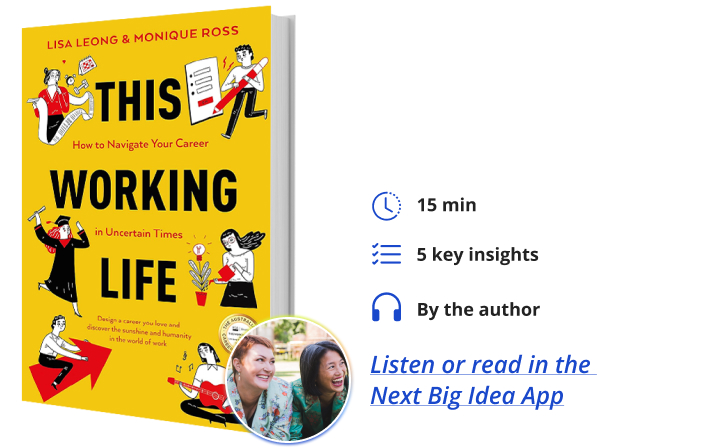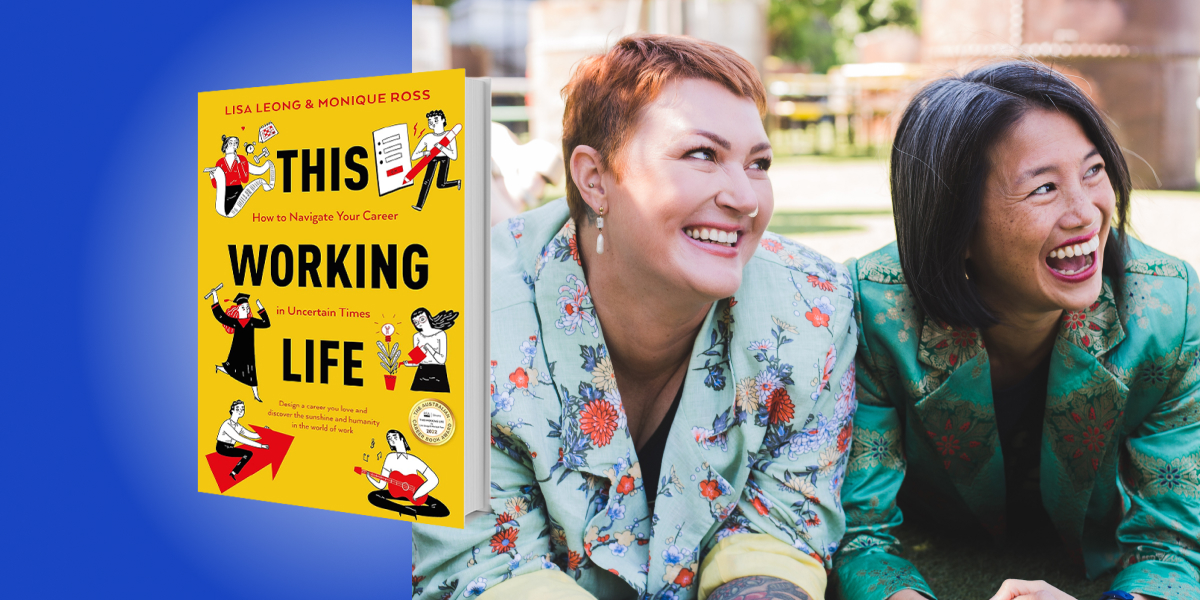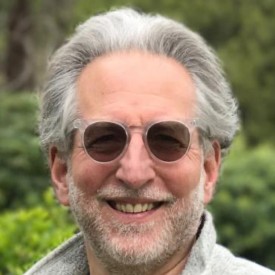Lisa Leong is a broadcaster, media commentator, and business consultant. She is the host of ABC Radio National’s This Working Life. She is a former corporate lawyer and graduate of the Customer-Focused Innovation program of Stanford University’s GSB, the Stanford d.school, the Australian Film Television & Radio School, and the University of Melbourne Law School.
Monique Ross is a freelance journalist, writer, and editor who has previously worked for ABC News Digital and ABC Radio National. She is also a certified Nature and Forest Therapy Guide, and the founder of Heartwood Nature Bathing.
Below, co-authors Lisa and Monique share 5 key insights from their new book, This Working Life: How to Navigate Your Career in Uncertain Times. Listen to the audio version—read by Lisa and Monique—in the Next Big Idea App.

1. The Category of One.
Competing, comparing, FOMO, FOPO—it’s exhausting, right? Well, try this thought exercise. In marketing, there is a concept called the Category of One. It’s where the product is so unique, it has its own, entire market—there is no competition.
What if you could see yourself as a Category of One? No one else has your parents, your upbringing, your interests, your relationships, or your brain. So, why are you comparing yourself with others? As a corporate lawyer (Lisa), I felt free to practice law my way—all singing, all dancing. I used to play backing music before my client presentations and sometimes I would finish them with a song!
For me (Monica,) writing and forest bathing seem like strange bedfellows but I find my own way to bring them together! I feel free when approaching both from a new perspective, infusing mindfulness into how I think about work.
2. You are not your mistakes.
We have a motto, Every Day is Lab Day. It’s about adopting the mindset of a scientist and treating your work life like an experiment.
In a lab, all results are great data, even if the experiment doesn’t go to plan. And importantly, if the experiment fails, the experiment fails. You are never a failure, even if you’re so bad at science that you spark the evacuation of an entire lab!
“No matter what happens, it’s fascinating!”
We need to work to reframe how we react to making a mistake, and how it makes us feel. Incredible conductor Ben Zander, who wrote The Art of Possibility, taught his musicians to say this when they make a mistake: “How fascinating!” This fosters curiosity and openness, instead of feelings of shame or fear. It can help us have courage at work and try new things. No matter what happens, it’s fascinating!
Say I fumble my words in a live radio interview: “How fascinating!” My great idea wasn’t successful: “How fascinating!” Or I’m a heart surgeon and my hands get shaky… Well, maybe not that fascinating. That would be bad!
3. Bad things can happen in our lives, but we can learn from them.
Speaking of bad things, they do happen in our lives. It is not really a surprise, even though for some reason we tend to be surprised. Sometimes we need our bodies to shout at us before we can hear. My body was shouting at me and it still took me ages to hear it! I remember scrolling through Instagram and I came across a list: Signs you have burnout. Exhausted before you get out of bed? Check! Detached from a job you used to love? Check! Irritable and emotional? Check!
I decided to do a career 180. It was tough, like wading in treacle. Now that I’m on the other side, I can see that there is a gift in that struggle. I’ve got more self-compassion, I communicate better, set better boundaries, and I’ve changed how I work so it aligns with who I am.
This idea of The Gift of Struggle, which comes from Bobby Herrera, is so useful. Bad things happen, but they teach us something. And those lessons help us create more meaning in life.
4. Build your squad!
Even if you’re working from home, or freelancing, you don’t need to go it alone. Getting the right people around you can help you learn and grow, feel supported, and be inspired. They could be your colleagues, people in other industries, or a suite of mentors. We can all explore how to better collaborate with others.
“Getting the right people around you can help you learn and grow, feel supported, and be inspired.”
A few years ago I worked with a telco client as a consultant. They were grappling with long hours, cost-cutting, and doing lots of mundane work that they shouldn’t have been doing. They had lots of innovative ideas about how to shift their work from low value to high impact. But zero change! I asked them, how do you generate ideas? They answered, “Well, we sit around a table. Each person suggests an idea, then the rest of us critique it. It’s like we are intellectual piranhas! We gobble up ideas until we are left with nothing.”
The antidote to intellectual piranhas is an improv trick we learned from Dan Klein, an improv legend at Stanford University. He taught us: YES, AND. Every time someone comes up with an idea, instead of saying the usual “YEAH, BUT” and gobbling up their idea, start with “YES, AND” and see what happens!
5. What you do matters, but who you are matters more.
We can get so caught up in what we do. Our identity becomes so intertwined with our work, that it can be disastrous when we leave a job. This is because we don’t know who we are without it.
When I studied at AFTRS (Australian Film Television and Radio School), our head of radio Steve Ahern asked us a simple but profound question: “Who are you when the On Air light switches off?” The On Air light represents being live and on the air. But someday, you won’t be on the air, whether it’s your choice or not. So, who will you be then? If you identify as your work role—whether you are a radio presenter, a CEO, a manager, or a professional—then you are leaving yourself open to a massive existential identity crisis one day.
What you do matters, but who you are matters more. Remember, you’re a Category of One! Knowing this, how might you approach your work and life? What might you do differently? Cultivate a career you love, one that is meaningful and joyous. Work doesn’t have to be a slog!
To listen to the audio version read by co-authors Lisa Leong and Monique Ross, download the Next Big Idea App today:
































